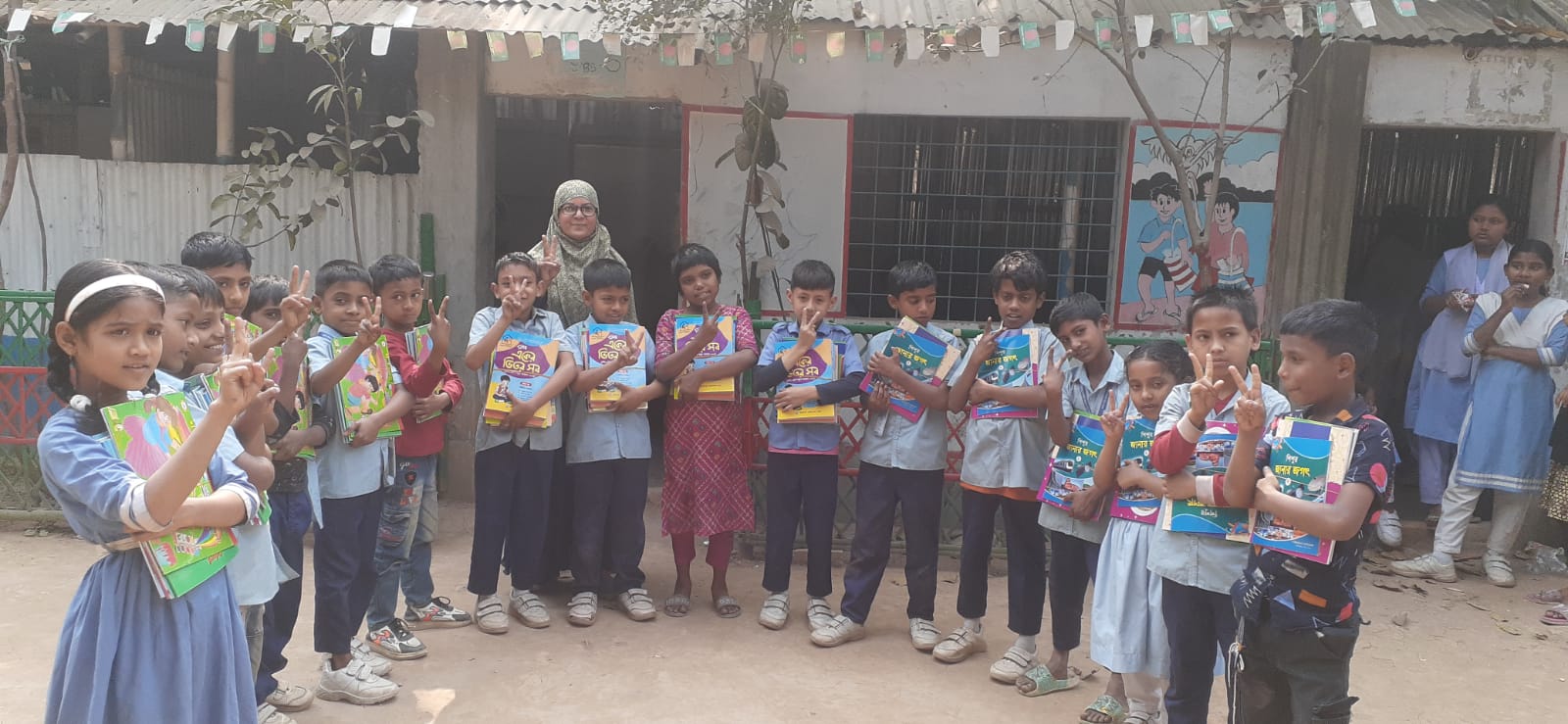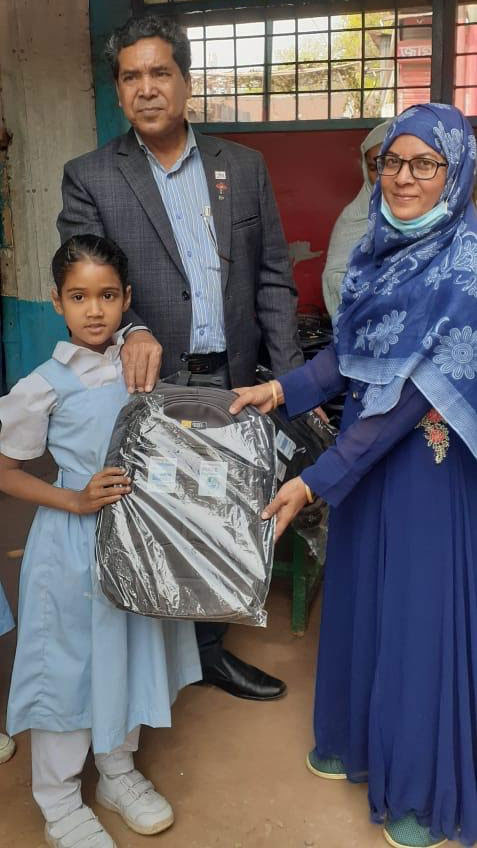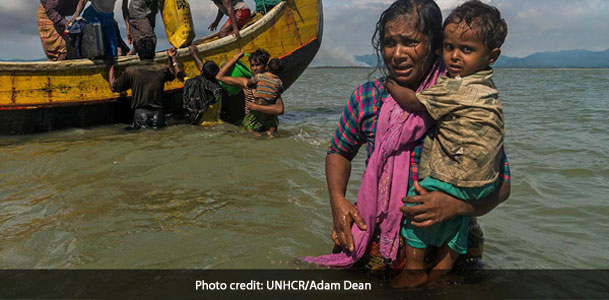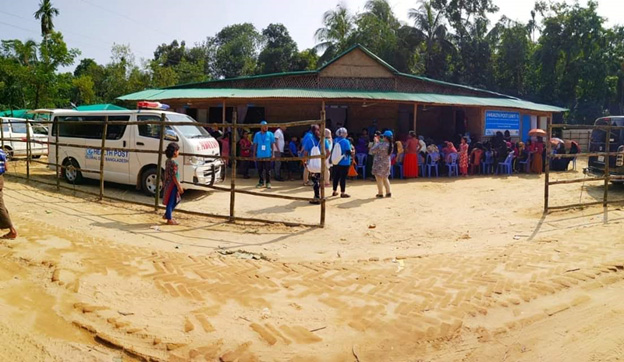
International Wastepickers Day
March 1st is International Wastepickers Day. This year for International Wastepickers Day we would like to announce our new program in Dhaka, Bangladesh, educating 20 former child wastepickers. To help implement the program, we will be partnering with SPACE, a non-profit working in the slums in Dhaka.
Wastepickers in Dhaka make their living by selling recyclable items collected from dumped waste either along the streets or at one of the dumpsites. Waste-picking in Bangladesh is often considered an occupation for the poorest of the poor. According to the Bangladesh Labour Foundation (BLF), there are an estimated 100,000 waste pickers in Dhaka; most of whom are women and children. Many of these wastepickers live on the streets or in the slums where they have little access to infrastructure, education, or health care, and thus face a low status in society with an uncertain future. Wastepickers are often exposed to unhygienic conditions, toxic fumes and injury from sharp objects. Their lack of skills, discrimination, and dire poverty often means wastepicking is their only means of survival.
 Our program in Dhaka, consists of three main components: education, health, and hunger relief. In partnership with SPACE who is handling the implementation and monitoring on the ground, we will be sending these 20 children to school, monitoring their school progress, and providing them with school fees, uniforms, and supplies. After a few months of the program running, we will determine the need for any afterschool tutoring. Aside from school and education, we also focus on health. Each year we are providing the children with annual health checkups and are teaching the children and their families the importance of health, basic hygiene, and sanitation. Additionally, we have found that the families of these children are struggling to survive and provide even just one meal a day. To ensure that they eat a decent meal every day, and that the parents don’t have to depend on their children’s income from wastepicking, the Unforgotten is providing monthly food rations to the families.
Our program in Dhaka, consists of three main components: education, health, and hunger relief. In partnership with SPACE who is handling the implementation and monitoring on the ground, we will be sending these 20 children to school, monitoring their school progress, and providing them with school fees, uniforms, and supplies. After a few months of the program running, we will determine the need for any afterschool tutoring. Aside from school and education, we also focus on health. Each year we are providing the children with annual health checkups and are teaching the children and their families the importance of health, basic hygiene, and sanitation. Additionally, we have found that the families of these children are struggling to survive and provide even just one meal a day. To ensure that they eat a decent meal every day, and that the parents don’t have to depend on their children’s income from wastepicking, the Unforgotten is providing monthly food rations to the families.
This new program launched in January 2024, and we are excited to see our work in Bangladesh expand.
Projects
Rohingya Refugees

Rohingya refugees have been fleeing violence in Myanmar at a staggering rate – and the numbers keep growing. They walk for days through jungles and mountains, or brave dangerous sea voyages across the Bay of Bengal. They arrive exhausted, hungry and sick – in need of international protection and humanitarian assistance. According to UNHCR, over 742,000 refugees have fled to Bangladesh since 25 August 2017.
Violence in Myanmar’s northern Rakhine State has been brewing for years, and the most recent outbreak has resulted in an influx of Rohingya refugees to Cox’s Bazar across the border in Bangladesh.
The Unforgotten launched operations in Cox’s Bazaar, Bangladesh in January, 2019 where over 1 million refugees have settled following the Rohingya Myanmar Crisis.
The Unforgotten, in partnership with the Council of Organizations, has been launching projects with in-country partners to provide WASH (Water, Sanitation and Hygiene) and Medical services to Rohingya refugees.
WASH Project

Under the umbrella of the UNA Council of Organizations, we completed 13 water, sanitation and hygiene (WASH) projects in partnership with SPACE. The goal was to equip Rohingya refugees in the camp with basic water, sanitation, and hygiene services. Consequently, we installed 4 deep tube wells, 4 community toilets and 8 bathing and hygiene management facilities for women.
Health Clinic

Upon completion of the WASH projects, we have now launched a health clinic, in partnership with Global One. The project goal is to provide emergency health care services for Rohingya refugees and surrounding host communities with a special concentration on maternal and newborn child health.
